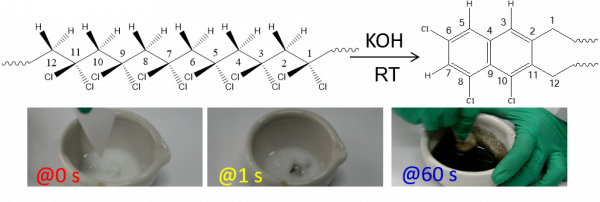Carbon4Energy
简介 We Provide Carbon-Based Chemical Solutions for Energy Conversion and Storage
分享到
Unconventional Carbon: Alkaline Dehalogenation of Polymers Yields N-Doped Carbon Electrode for High-Performance Capacitive Energy Storage
2016
期刊
Advanced Functional Materials
作者
Guoxin Zhang
· Lin Wang
· Yongchao Hao
· Xiuyan Jin
· Yuqi Xu
· Yun Kuang
· Liming Dai
· Xiaoming Sun

- 卷 26
- 期 19
- 页码 3340-3348
- Wiley
- ISSN: 1616-301X
- DOI: 10.1002/adfm.201505533
